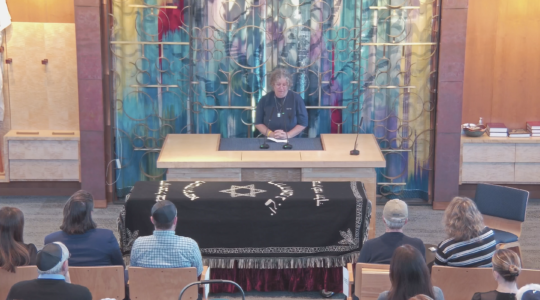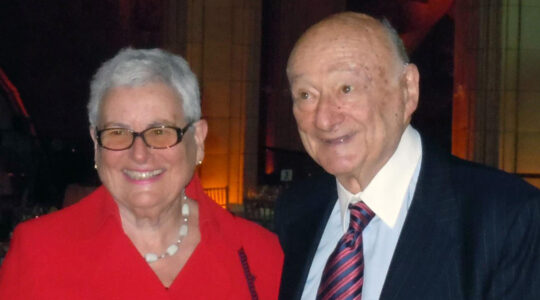(JTA) — Maria Slepak, a Prisoner of Zion and Soviet Jewry leader with her husband before they were finally allowed to immigrate to Israel, has died.
Slepak and husband Vladimir were permitted to leave the Soviet Union in October 1987, 17 years after they first applied for an exit visa. Their son Alexander had departed for Israel in 1977, joining Maria’s mother. Another son, Leonid, came two years later.
In 1978, eight years after they first applied to immigrate, Maria and Vladimir were arrested for hanging a banner outside their Moscow apartment window that said “Let Us Go to Our Son in Israel.” Vladimir was sentenced to five years’ exile in Siberia on charges of malicious hooliganism and Maria, a radiologist, was given a three-year suspended sentence. But she volunteered to share her husband’s exile, traveling to Moscow periodically in attempts to retain her residency permit.
From the time the couple applied to emigrate — their first refusal came on the basis of Vladimir’s work as a radio engineer, which was deemed “secret work” — they were under constant surveillance and even house arrest. Their apartment was repeatedly searched and their books and belongings were confiscated on more than one occasion.
“For almost twenty years, Volodya and Maria Slepak were, without exaggeration, the undisputed leaders of the historic movement for the spiritual and physical freedom of Soviet Jewry,” former Soviet refusenik Natan Sharansky and his wife, Avital, said in a statement issued Thursday. “They played a decisive role in maintaining strong ties between Jewish activists in the Soviet Union and the Jewish world. Their tiny communal apartment in Moscow was a true center of our movement in the seventies and eighties, hosting thousands of Jews from across the Soviet Union, as well as tourists from abroad who came to help and Western journalists.
“Maria had the spiritual and physical strength not only to welcome, host, and feed everyone, but even under the most difficult circumstances to support her friends with a kind word, open and sometimes sharp conversation, and jokes even in times of tears.”
Upon their arrival in Israel, the couple were greeted by dozens of Soviet immigrants and officials. Vladimir Slepak died in 2015.
JTA has documented Jewish history in real-time for over a century. Keep our journalism strong by joining us in supporting independent, award-winning reporting.





